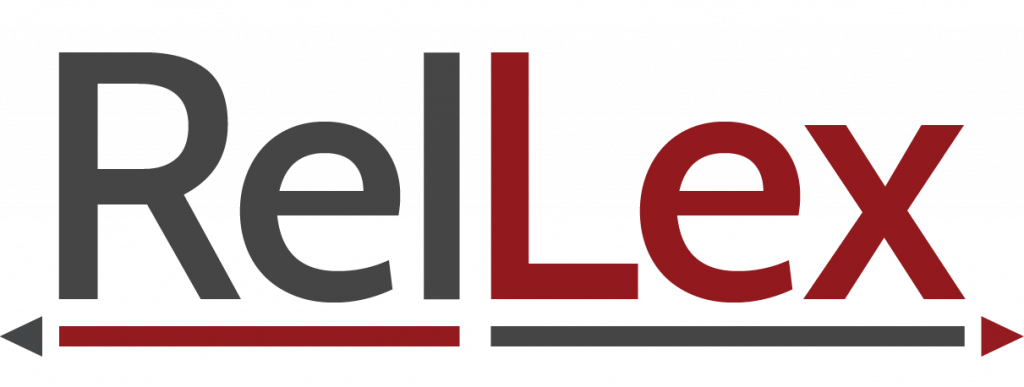Newsletter March 2023

Dear Relational Lexicography Partners, Collaborators, Affiliates, and subscribers to our occasional Newsletter,
The Relational Lexicography project has continued to grow in productive ways since our 2022 update! We have lots of news to share on the various aspects of our project, including some elements that are nearing completion, announcements of upcoming conferences, and an exciting special issue of the journal Dictionaries.
Farewells and Welcomes
There have been changes to our team over the past year. We said farewell to Julia Schillo, Kenna McEwan, Zeke Nolan and Holly Davies last fall, and were excited to welcome Agata Beau Ramos and Lindsey Reed as new Undergraduate Assistants on the RelLex team. Agata is a second year student at UBC Okanagan double majoring in Psychology and Anthropology. Agata is continuing to scope dictionaries, adding more information to existing posts on our online Dictionaries Knowledgebase. Lindsey is a second year student in First Nations and Endangered Languages at UBC Vancouver, and has been working to complete our literature review and move it towards publication. She is now turning her attention to the Technologies section of our Knowledgebase, which focuses on digital tools for lexicography.
Community Partnerships
We have continued to work alongside and in close collaboration with our community partners Splatsin Tsm7aksaltn and Selkirk First Nation.
In May of 2022, we held a successful online focus group discussion with Selkirk First Nation (SFN) to work through the needs and expectations for an online dictionary project. This dictionary project is now well underway, and Bailey Trotter and Victoria Sear are working closely with SFN’s Language Coordinator, April Baker, to develop the online dictionary using the Mother Tongues web interface. The first stage of this dictionary, involving the digitization of the 1977 Selkirk Indian Language Noun Dictionary (Ritter), is nearly complete. We are now preparing for the next stage which includes adding audio and example sentences, as well as incorporating other existing word lists.
Over the last year, our work with Splatsin Tsm7aksaltn has focused on supporting the development of QR codes, which have now been placed around the Tsm7aksaltn with links to entries for their language on First Voices.
Upcoming Conferences
Members of our team are presenting at the 8th International Conference on Language Documentation & Conservation (ICLDC) on Saturday March 4 at 7:15pm PST. Entitled An Open Access Toolkit for Collaborative, Community-Informed Dictionaries, the presentation by Bailey Trotter, Meryl Bishop, Christine Schreyer, Victoria Sear, and Mark Turin discusses our Dictionaries Knowledgebase in the context of language justice. The conference will be held fully online, so we hope to see you there! If you can’t make it, you can find our pre-recorded presentation on ICLDC’s Youtube.
Together with community partners and a number of scholars working on Indigenous language dictionaries, Christine Schreyer and Mark Turin are convening an invited panel at the 24th Biennial Dictionary Society of North America Conference, held at the University of Colorado, Boulder, from 31 May to 3 June, 2023. This year’s conference will feature a workshop and plenary panel on lexicography of Indigenous North American languages.
Publications
We are excited to announce that one of our long running projects, the annotated literature review of resources relating to community-focused lexicography, is now complete. This annotated list of references will serve as an open-access, public-facing compendium of resources of lexicographic work with, on, for and in minoritized language communities. We plan to publish this resource with UBC Okanagan’s open access Institute for Community Engaged Research (ICER) Press.
Christine Schreyer and Mark Turin have been invited by M. Lynne Murphy, editor of Dictionaries: The Journal of the Dictionary Society of North America, to guest edit a special issue on lexicography for Indigenous languages. The special issue—Volume 44, Issue 2—will be published in the second half of 2023 and a call for papers will be circulated soon. Please reach out to Christine or Mark if you are interested in contributing!
A list of Publications that have been released in the course of this project, together with links to read or download them, can be found on the Relational Lexicography website under the “Activities” tab.
Knowledgebase
Our Knowledgebase website includes sections on Dictionaries and Technologies, and is nearing completion.
In the Dictionaries section, we now have public posts for around 700 dictionaries, and are currently adding additional information to the existing entries. The Dictionaries Knowledgebase is an online, searchable and browsable catalog of known dictionaries of Indigenous and under-resourced languages spoken in North America. It is filterable to allow easier access to the dictionary posts, and to allow users to locate specific types of dictionaries.
The Technologies section of the Knowledgebase provides a list of technologies which are specifically designed to be used for, or to support, lexicography. For each technology or tool, we provide a summary of how it can and has been used, screenshots of the interface when available, some highlights and considerations, any reviews or guides we have been able to locate, and relevant information on access, flexibility and data management (import/export/compatibility with other software and operating systems). The Knowledgebase now includes information on 13 technologies. Although we will add a few more technologies, we are excited to announce that this aspect of the Knowledgebase is nearly complete.
The Dictionaries and Technologies sections of the Knowledgebase are now available to view. Both pages are fully filterable, making information easier to locate. Our hope is that this resource will be useful to those engaged in community-based dictionary projects by providing a place to review earlier work and also learn about the various technologies currently being used to support dictionary projects.
Staying in Touch
We look forward to sharing occasional updates with you as we go. Thank you for being a part of this project and of our ever-expanding network of partners, collaborators, affiliates, and supporters.
Please don’t hesitate to contact us at: dictionaries.arts@ubc.ca
You can find more information on our website, or view our in-progress Knowledgebase for information on Dictionaries and Technologies.